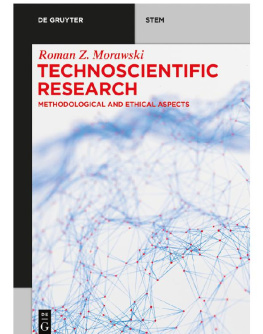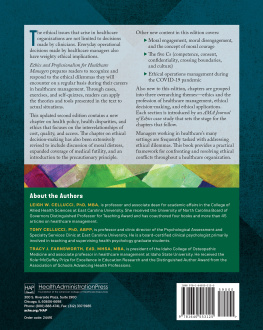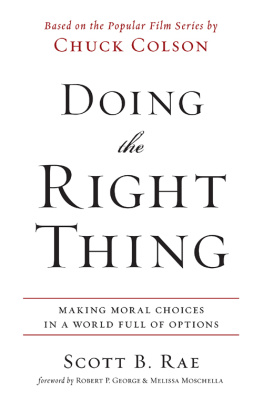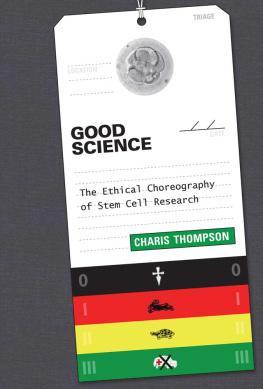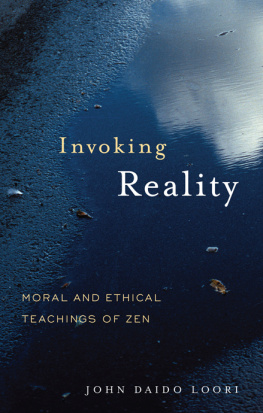Author
Roman Z. Morawski, Ph.D., D.Sc.,
Professor of Measurement Science
Warsaw University of Technology,
Faculty of Electronics & Information Technology
Institute of Radioelectronics & Multimedia Technology
ul. Nowowiejska 15/19, 00-665 Warszawa, Poland
ISBN 978-3-11-058390-8
e-ISBN (PDF) 978-3-11-058406-6
e-ISBN (EPUB) 978-3-11-058412-7
Library of Congress Control Number: 2019930905
Bibliographic information published by the Deutsche Nationalbibliothek
The Deutsche Nationalbibliothek lists this publication in the Deutsche Nationalbibliografie; detailed bibliographic data are available on the Internet at http://dnb.dnb.de.
2019 Walter de Gruyter GmbH, Berlin/Boston
Cover image: Gremlin / iStock / Getty Images
www.degruyter.com

Also of interest
Human Forces in Engineering
A. Atrens, 2018
ISBN 978-3-11-053472-6, e-ISBN (PDF) 978-3-11-053512-9,
e-ISBN (EPUB) 978-3-11-053526-6
Philosophy of Mathematics
T. Bedrftig, R. Murawski, 2018
ISBN 978-3-11-046830-4, e-ISBN (PDF) 978-3-11-046833-5,
e-ISBN (EPUB) 978-3-11-047077-2
The Science of Innovation
K. Lhr, 2016
ISBN 978-3-11-034379-3, e-ISBN (PDF) 978-3-11-034380-9,
e-ISBN (EPUB) 978-3-11-039658-4
Entrepreneurship for Engineers
H. Kohlert, D. Fadai, H. Sachs, 2013
ISBN 978-3-486-73298-6, e-ISBN (PDF) 978-3-486-76972-2
Roman Z. Morawski
Technoscientific Research

Preface
Disclaimer: The masculine form of the gender-specific third-person pronouns (he, him, his, his, himself) is consistently used throughout this book whenever they refer to an indefinite person. This convention has been assumed to avoid awkward slash constructions (he/she, him/her, his/her, his/hers, himself/herself) or alternated use of masculine and feminine pronouns. It should be always interpreted as inclusive with respect to the persons of both sexes.
This book contains a synthesis of my methodological and ethical experience accumulated over half a century of academic work in the field of measurement science and its applications in electrical and computer engineering, in physics and chemistry, in biology and medicine, as well as in natural environment protection and food technology. This synthesis has been accomplished during the last decade due to the needs resulting from my responsibility for the courses on methodology and ethics of research, addressed to graduate students of Warsaw University of Technology, and due to more systematic confrontation with the literature of the subject, mainly in English and Polish, but also in German, French, Spanish and Italian. I have cited that literature in this book not only to support my own observations and conclusions, but also to give credit to the authors who actually have influenced my understanding of the subject-matter. The content of Chapters 1119 of this book is largely based on the material provided in its Polish prototype constrained to ethical aspects of research ( Etyczne aspekty dziaalnoci badawczej w naukach empirycznych ), which was published by the University of Warsaw in 2011.
A vast majority of authors of the texts on the methodology and ethics of technoscientific research are philosophers of science and ethicists. So, proposing one more volume on this subject, without having any formal background in philosophy, has required of me some audacity and strong motivation. I have undertaken this task being convinced that both research methodology and research ethics are actually interdisciplines that combine philosophy with science and technology, and therefore both philosophy and research practice are their natural sources of inspiration. As a rule, philosophers writing for philosophers are inclined to ignore practical issues of research, as being trivial, and to focus on controversies, as being intellectually more attractive. My teaching experience, related to the classes for graduate students of engineering and technology, has made me realise that there is a need for a less sophisticated and more practical approach to the subject-matter. This is the rationale behind the concept of a handbook written by a research practitioner for research practitioners which does not focus on the overgrown terminology of philosophy of science and research ethics on classification of the panoply of stances promoted by various schools of thinking but offers guidance in the everyday activities aimed at generation and evaluation of knowledge. This book is also distinctive by an integrative approach to methodological and ethical issues related to research practice, by a strong emphasis on the issues related to mathematical modelling and measurement, as well as by attempted application of engineering design methodology to moral decision-making. This book is neither a philosophical treaty nor a quick reference guide for Ph.D. students in a desperate need to make their theses satisfy minimum formal requirements being in force in their domain of study. It is intended to be a bridge between research practice and philosophy of science not only encouraging to deeper reflection, but also providing some practical advice.
My teaching and research experience has shown that young researchers unwillingly enter into a philosophical discourse because they consider it as counterproductive. On the one hand, they are convinced that moral reasons are irreconcilable with business reasons, even with the pursuit of material success in general; on the other hand, they are discouraged by the uncertainty and unambiguity of philosophical conclusions in any non-trivial matter. For those who have experienced the intellectual comfort of solving mathematical problems or problems of engineering design, this is actually a very frustrating situation. In mathematics, problems which do not have solutions or have ambiguous solutions are called ill-posed problems . This concept, when generalised on non-mathematical problems, applies to the majority of real-world methodological and ethical dilemmas. When trying to resolve them, one can never be sure that all the arguments in favour of alternative solutions and against them have been identified, and what criteria for weighing the available arguments are most appropriate. There are, however, serious practical reasons motivating us to deal with this kind of intellectual inconvenience; in particular:
- though wrong decisions cannot be completely avoided, we may improve their overall quality at least from the point of view of the consequences that they entail;
- by realising various aspects of our research activities, we can positively influence the formation of our methodological and ethical intuitions that guide our automatic behaviours.
The readers of this book are not expected to have any philosophical preparation. They are guided through the sources of relevant background information, very diversified in terms of the language and content and in terms of the level of advancement; a mild preference is given to the textbooks in which experts have already synthesised information from primary sources. This book can be a teaching aid for students attending classes (both lectures and tutorials) which are intended to broaden general philosophical knowledge, to identify methodological and ethical issues related to conducting scientific research, and to outline the methodology for analysing dilemmas arising in this context. This book does not provide ready-for-use solutions to difficult problems or easy strategies for solving them. Therefore, the researchers reading it will probably not experience any short-term benefits, but they have a chance to gain in a longer perspective when they discover how abstract methodological and ethical recommendations, formulated in the consecutive chapters of this book, apply to specific situations of research reality.
Next page
